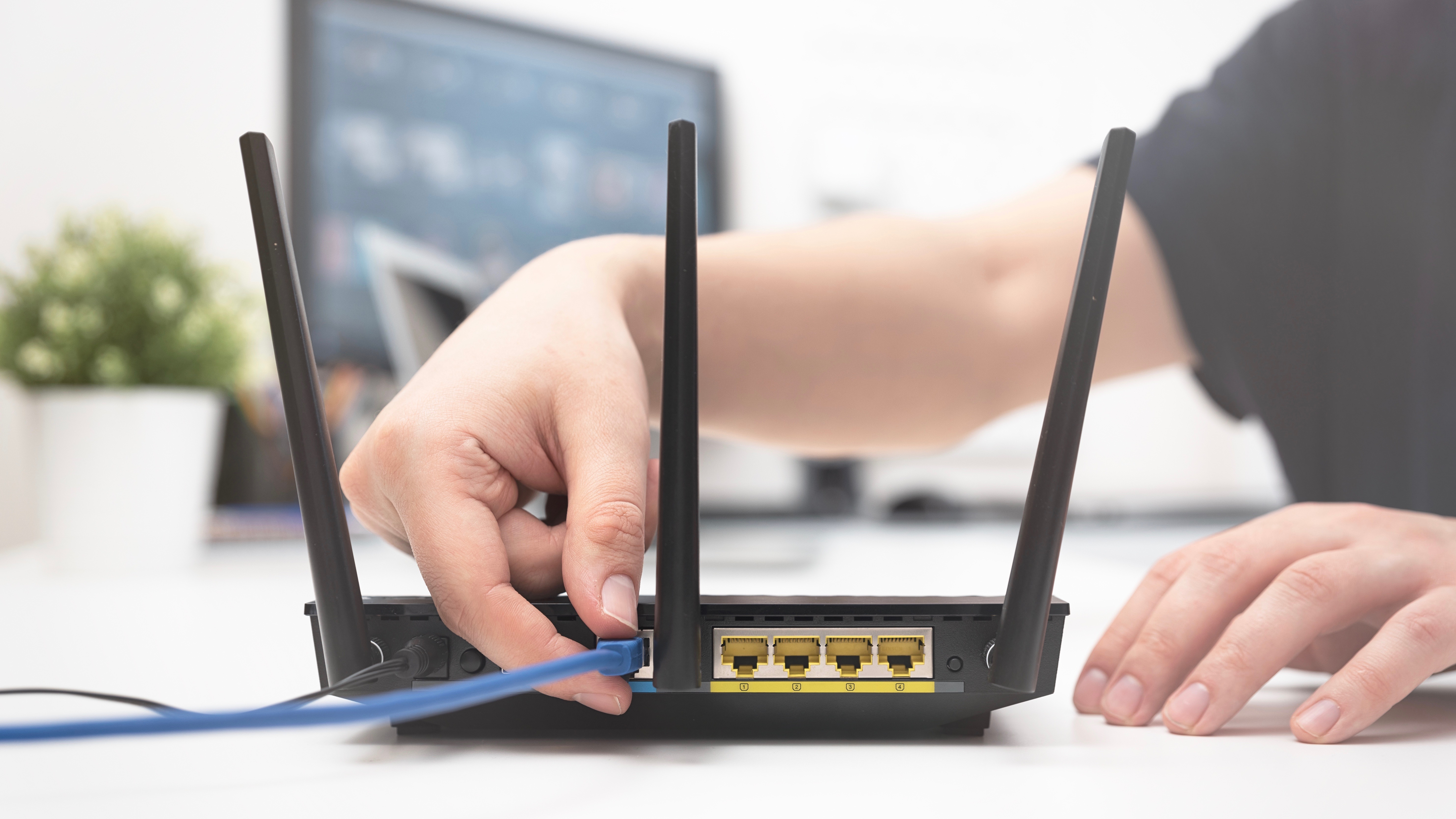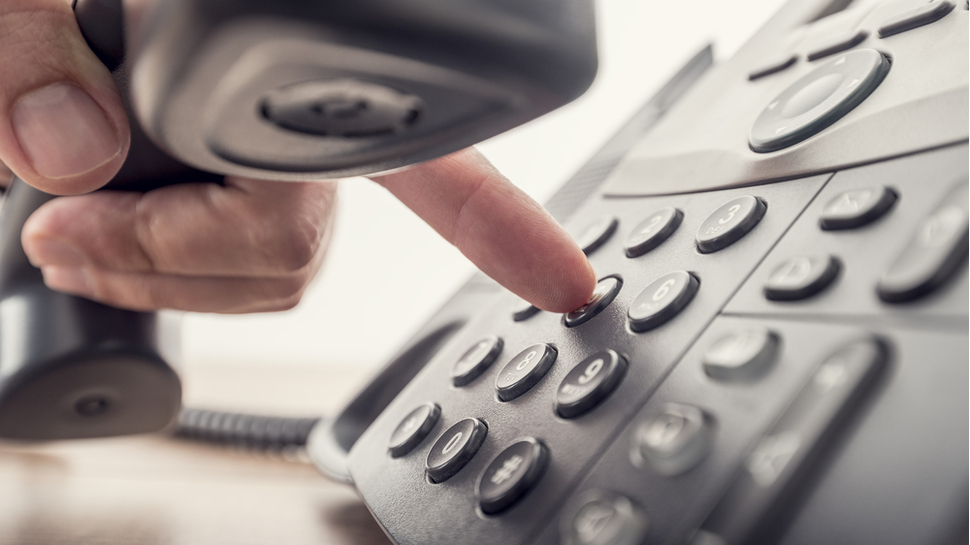Do you need a landline for broadband?
Is a landline still a thing?

Sign up for breaking news, reviews, opinion, top tech deals, and more.
You are now subscribed
Your newsletter sign-up was successful
The days of having a landline phone in the house are now firmly behind us. Despite this though, there's still a belief that you need to get a 'landline' in order to have the best broadband. In reality though, this isn't strictly the case.
After all, people tend to use their mobiles or devices to make calls these days. In the same respect, even those that do have the old push-button handsets in the house probably don't tend to use them as their main point of contact.
That said, there are some limited circumstances where landlines are a requirement for broadband. To end the myths and the speculation, we've put together this guide that sets the record straight and explains whether or not you actually do need to get a landline to make the most of the online world.
So, do you need a landline for broadband?
Whether or not you need a landline to receive broadband depends on the type of connection you choose.
This is because, for some types of broadband, such as ADSL, there is a requirement for a physical phone line to enter your property. However, for the majority of newer connections, like Full Fibre deals, independent cables are used. These are completely separate from the phone line's network, meaning that no phone line or landline is required.
A 'phone line' versus a 'landline'
As we've alluded to above, one of the big areas of confusion here is around the terms 'landline' and 'phone line', but specifically what's actually needed with broadband.
What can happen here is some of us can accidentally assume that a 'landline' and a 'phone line' are in fact the same thing. However, this is incorrect. While they both use the same physical cabling, the 'phone line' is what is connected to your property from the network cabinet on your street, whereas the 'landline' is the phone/handset you can plug into the 'phone line' socket in your home to then make calls.
Sign up for breaking news, reviews, opinion, top tech deals, and more.
That said, if you were to speak to a provider and use the terms interchangeably, the chances are they'd know what you were actually referring to and should be able to point you in the right direction. In fact, some companies still even use the term 'landline' to refer to both.
So in regards to broadband, some types will need a phone line connection to your property in order for them to work, but if this is the situation, you DO NOT need to have a landline phone/handset with it. You can just have your broadband coming into your home or business via a phone line and you can then opt for having a landline attached to it as well, should you want to make calls from a handset.
But as we've also mentioned above, some broadband options don't even need a phone line, so let's take a closer look at each option in detail...
Which types of broadband require a phone line?
If you have ADSL (Asymmetric Digital Subscriber Line) or 'fibre-to-the-cabinet' (FTTC) broadband - or this is the broadband you're considering getting - then you will need a phone line. This is because such connections are run through this network of older copper wires and as such these tend to offer slower speeds.
We go into more detail about this in our guide to ADSL and fibre broadband, but in short, ADSL speeds can average around 10Mbps and FTTC can range between 30 and 80Mbps - but with FTTC the speed also depends on how far your property is from the nearest exchange cabinet; the closer you to it are the better.
A positive here though is that the slower speeds from such connections often mean the packages that providers offer are amongst the cheapest broadband deals you can get. Although we should point out that ADSL is now only really available in places where fibre has yet to be rolled out, and much like landlines, we expect to see these phased out in the coming years.

Which types of broadband don't require a phone line?
If your property is in an area where 'full fibre' is available and you have a 'fibre-to-the-premises' connection, you won't need a phone line and instead can make the most of ultrafast speeds that can be in excess of 1Gbps.
Similarly, if you are directly connected to an independent broadband network, such as Hyperoptic's broadband or even Virgin Media's, you also won't need to have a phone line installed.
A few other types of broadband where you don't need a phone line include satellite broadband, as well as 5G and 4G broadband - to learn more about the former, check out our guide to the best 5G broadband deals. As you may be able to work out from the names, none of these require fixed lines and instead, your internet is beamed to a dish from a satellite or harnessed through mobile data networks, respectively.
As also mentioned above, these types of broadband are the faster options, but these are only available to you if your property can access these different networks or mobile signal areas. The ultrafast speeds might also not necessarily be needed for some smaller households - to find out more about this and to get a better idea of what speeds suit different households, have a look at this guide we've put together about different broadband speeds.
So to summarise the above:
- ADSL - needs a phone line
- Fibre-to-the-cabinet (FTTC) - needs a phone line
- Fibre-to-the-premises/full fibre (FTTP) - does not need a phone line
- Independent cable - does not need a phone line
- Satellite broadband - does not need a phone line
- Mobile, 4G, 5G broadband - does not need a phone line
Is it cheaper to get broadband without a landline?
It often isn't. As the majority of providers are trying to move customers towards future-proof Full Fibre deals and away from ADSL connections, packages that doesn't require a landline are usually priced incredibly competitively. This means that fast Full Fibre packages are often the same price as much slower ADSL connections.
However, this may vary in your exact location. As a result, the best thing to do here is to look through our guide to the best broadband deals. This will show you all of the very best deals that are available at your address, including both broadband-only packages and deals that include a landline.
Can you get a landline at a later point in a broadband-only contract?
If you opt for a broadband-only deal but later decide that you actually want to have a landline then you have a few options:
- See if you actually do have a phone line and/or calls package included in your current broadband deal and look to get a landline phone installed.
- Contact your provider to see if you can change your package to get a landline included (but this might see your monthly costs increase).
- Look to move to a new broadband deal with a different provider (although you may need to pay an exit fee if you're in the middle of your contract).
- If you're out of contract, shop around and switch to a new provider that offers a phone line and calls package as part of the deal.
- If you are on a broadband package that doesn't use a phone line, speak to your provider about what options you have regarding how you can have and use a home phone handset.
What is 'line rental?'
The broadband industry can be full of complex jargon that's difficult to decipher. One great example of this is the term 'line rental'.
In essence, this is a cost that you need to pay each month that covers the maintenance of the old copper phone lines that connect to your property. You also have to pay this even if you don't have a landline but your internet connection relies on the wiring.
However, the good news here is that if you do opt for a broadband package that doesn't need a phone line (such as a Full Fibre package), then you won't have to pay for line rental at all.
What broadband deal should I choose?
If you know you're going to want a landline then you now know exactly what broadband deals to look for. But, at the same time, it's good to be aware of the different options out there - especially as the country is on course to switch primarily to full fibre within the next five years.
So again, have a look through our run down of the best broadband deals or enter your postcode into our widget below and we'll show you what's on offer in your area. You'll then be able to compare the costs of broadband-only or landline-inclusive packages and can make sure you choose the option that suits your needs and budgets.

Rich is a freelance copywriter and content strategist with over 10 years' experience. His career has seen him work in-house and in various agencies, producing online and offline content marketing campaigns and copywriting for clients in the energy industry.